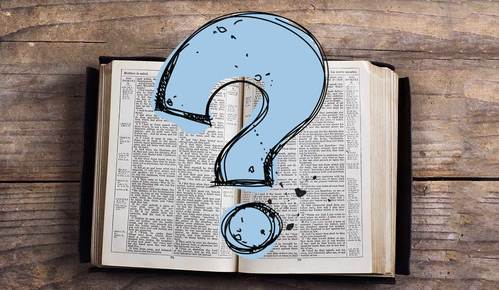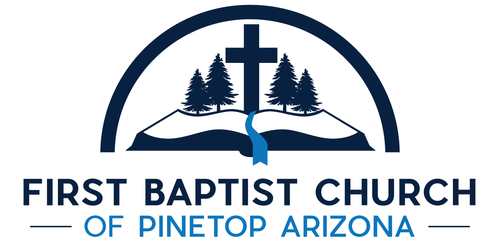
Why did Paul say the gospel brings salvation to the Jew first and then the Gentile?
In Romans 1:16 Paul writes, “I am not ashamed of the gospel, because it is the power of God that brings salvation to everyone who believes: first to the Jew, then to the Gentile.” The gospel is intended for all people. But, chronologically, the gospel message was first revealed to the Jewish people before it was revealed to the Gentiles (non-Jewish people).
The Jews are God’s chosen people (Deuteronomy 7:6–7). Through the Jews, God demonstrated His love and holiness to the world: “Theirs is the adoption to sonship; theirs the divine glory, the covenants, the receiving of the law, the temple worship and the promises. Theirs are the patriarchs, and from them is traced the human ancestry of the Messiah” (Romans 9:4–5). It was through the seed of Abraham that “all peoples on earth will be blessed” (Acts 3:25; cf. Genesis 22:18; 26:4). That promised blessing came through Jesus Christ, as explained in Galatians 3:16. Jesus was born as a Jew under the Law, fulfilled the Jewish Law perfectly, and died as a once-for-all sacrifice on behalf of all who would put their faith in Him (Galatians 4:4–5; Hebrews 9:14–15, 23–28).
In His public ministry, Jesus spoke of being sent to the Jews, and He focused His efforts on them. He was the Jewish Messiah, and He had come, in part, to “strengthen Judah and save the tribes of Joseph” (Zechariah 10:6). On one occasion, Jesus seemed to rebuff the pleas of a Gentile woman (though He later helped her) in Matthew 15:21–28 (also see Matthew 10:5). Jesus predicted that “repentance for the forgiveness of sins will be preached in [Christ’s] name to all nations, beginning at Jerusalem” (Luke 24:47, emphasis added). The gospel of the kingdom was to be a blessing to the whole world, but it was natural that it be first proclaimed to Israel.
When Paul speaks of the gospel bringing salvation “first to the Jew” in Romans 1:16, he alludes to the special relationship the Jews had to the Messiah. The Christ was the Son of David, and the hope of the Messiah had long been held by the Jews (see Luke 2:38). So, when the gospel of Christ was first proclaimed, the Jews had priority. We see this prioritization in Paul’s first missionary journey. Every time they would come to a new city, Paul and Barnabas would preach in the synagogue to the Jews in that city. In Pisidian Antioch, they were so opposed by the unbelieving Jews that the missionaries said, “We had to speak the word of God to you first. Since you reject it and do not consider yourselves worthy of eternal life, we now turn to the Gentiles” (Acts 13:46). The persecution in Antioch continued, and Paul and Barnabas were eventually expelled, so they went to the next town (verse 51).
There are several important things to note about Paul’s statement that the power of God in the gospel “brings salvation to everyone who believes: first to the Jew, then to the Gentile.” First, God did not cease saving Jews in order to save Gentiles. In all of his missionary journeys, Paul continued to preach first in the synagogues. God continues to desire the salvation of all the world (John 3:16–18; 1 Timothy 2:4).
Second, Jews are neither better nor worse than Gentiles. All need the Savior, and, in Christ, all are on equal spiritual footing. Colossians 3:10–11 reminds us we “have put on the new self, which is being renewed in knowledge in the image of its Creator. Here there is no Gentile or Jew, circumcised or uncircumcised, barbarian, Scythian, slave or free, but Christ is all, and is in all.” The believing Gentile is just as welcome in the family of God as the believing Jew. The Jew who has faith in Christ Jesus is just as secure in his salvation as the born-again Gentile.
Finally, salvation comes the same way to both Jews and Gentiles. It is for “everyone who believes” (Romans 1:16). Jesus is the only way of salvation (Acts 4:12; John 14:6) regardless of one’s heritage. Paul said, “I have declared to both Jews and Greeks that they must turn to God in repentance and have faith in our Lord Jesus” (Acts 20:21). Galatians 3:26–28 says, “So in Christ Jesus you are all children of God through faith, for all of you who were baptized into Christ have clothed yourselves with Christ. There is neither Jew nor Gentile, neither slave nor free, nor is there male and female, for you are all one in Christ Jesus.” All must come to Jesus in faith for salvation, and all are equally accepted by Him when they do.
used with permission by www.gotquestions.org
In Romans 1:16 Paul writes, “I am not ashamed of the gospel, because it is the power of God that brings salvation to everyone who believes: first to the Jew, then to the Gentile.” The gospel is intended for all people. But, chronologically, the gospel message was first revealed to the Jewish people before it was revealed to the Gentiles (non-Jewish people).
The Jews are God’s chosen people (Deuteronomy 7:6–7). Through the Jews, God demonstrated His love and holiness to the world: “Theirs is the adoption to sonship; theirs the divine glory, the covenants, the receiving of the law, the temple worship and the promises. Theirs are the patriarchs, and from them is traced the human ancestry of the Messiah” (Romans 9:4–5). It was through the seed of Abraham that “all peoples on earth will be blessed” (Acts 3:25; cf. Genesis 22:18; 26:4). That promised blessing came through Jesus Christ, as explained in Galatians 3:16. Jesus was born as a Jew under the Law, fulfilled the Jewish Law perfectly, and died as a once-for-all sacrifice on behalf of all who would put their faith in Him (Galatians 4:4–5; Hebrews 9:14–15, 23–28).
In His public ministry, Jesus spoke of being sent to the Jews, and He focused His efforts on them. He was the Jewish Messiah, and He had come, in part, to “strengthen Judah and save the tribes of Joseph” (Zechariah 10:6). On one occasion, Jesus seemed to rebuff the pleas of a Gentile woman (though He later helped her) in Matthew 15:21–28 (also see Matthew 10:5). Jesus predicted that “repentance for the forgiveness of sins will be preached in [Christ’s] name to all nations, beginning at Jerusalem” (Luke 24:47, emphasis added). The gospel of the kingdom was to be a blessing to the whole world, but it was natural that it be first proclaimed to Israel.
When Paul speaks of the gospel bringing salvation “first to the Jew” in Romans 1:16, he alludes to the special relationship the Jews had to the Messiah. The Christ was the Son of David, and the hope of the Messiah had long been held by the Jews (see Luke 2:38). So, when the gospel of Christ was first proclaimed, the Jews had priority. We see this prioritization in Paul’s first missionary journey. Every time they would come to a new city, Paul and Barnabas would preach in the synagogue to the Jews in that city. In Pisidian Antioch, they were so opposed by the unbelieving Jews that the missionaries said, “We had to speak the word of God to you first. Since you reject it and do not consider yourselves worthy of eternal life, we now turn to the Gentiles” (Acts 13:46). The persecution in Antioch continued, and Paul and Barnabas were eventually expelled, so they went to the next town (verse 51).
There are several important things to note about Paul’s statement that the power of God in the gospel “brings salvation to everyone who believes: first to the Jew, then to the Gentile.” First, God did not cease saving Jews in order to save Gentiles. In all of his missionary journeys, Paul continued to preach first in the synagogues. God continues to desire the salvation of all the world (John 3:16–18; 1 Timothy 2:4).
Second, Jews are neither better nor worse than Gentiles. All need the Savior, and, in Christ, all are on equal spiritual footing. Colossians 3:10–11 reminds us we “have put on the new self, which is being renewed in knowledge in the image of its Creator. Here there is no Gentile or Jew, circumcised or uncircumcised, barbarian, Scythian, slave or free, but Christ is all, and is in all.” The believing Gentile is just as welcome in the family of God as the believing Jew. The Jew who has faith in Christ Jesus is just as secure in his salvation as the born-again Gentile.
Finally, salvation comes the same way to both Jews and Gentiles. It is for “everyone who believes” (Romans 1:16). Jesus is the only way of salvation (Acts 4:12; John 14:6) regardless of one’s heritage. Paul said, “I have declared to both Jews and Greeks that they must turn to God in repentance and have faith in our Lord Jesus” (Acts 20:21). Galatians 3:26–28 says, “So in Christ Jesus you are all children of God through faith, for all of you who were baptized into Christ have clothed yourselves with Christ. There is neither Jew nor Gentile, neither slave nor free, nor is there male and female, for you are all one in Christ Jesus.” All must come to Jesus in faith for salvation, and all are equally accepted by Him when they do.
used with permission by www.gotquestions.org
